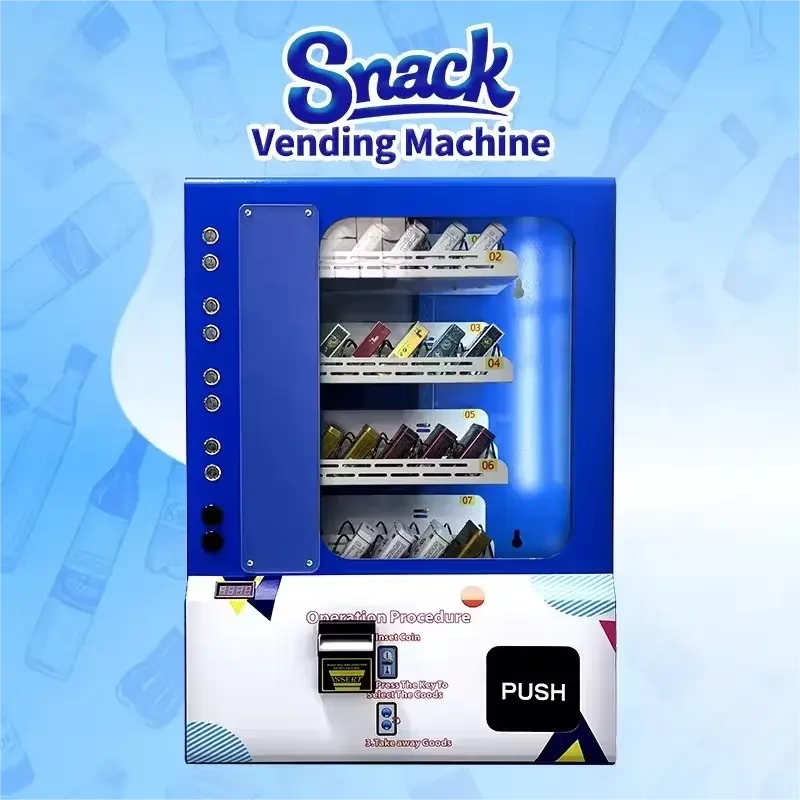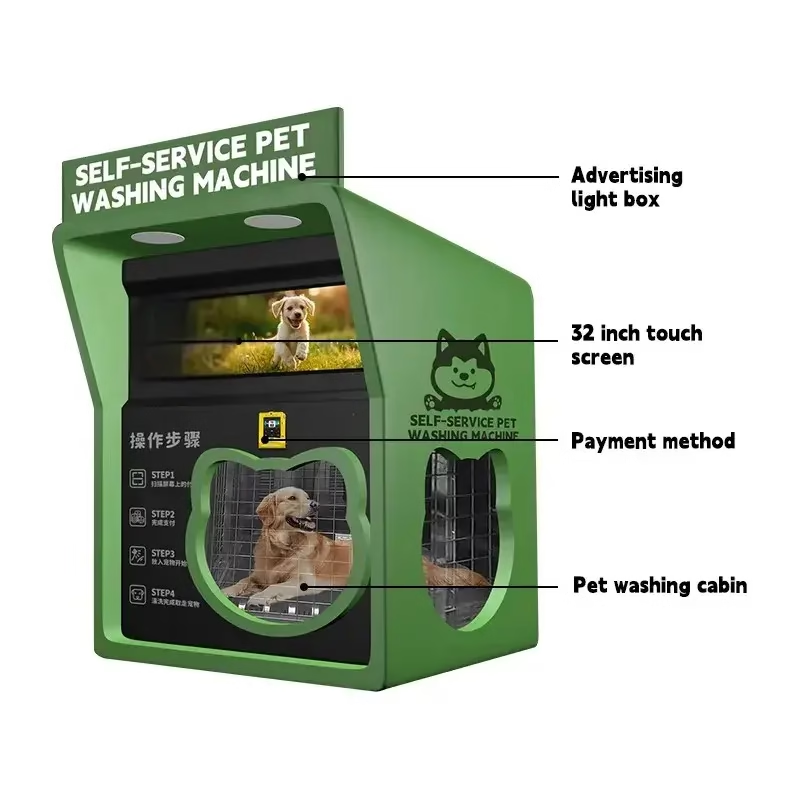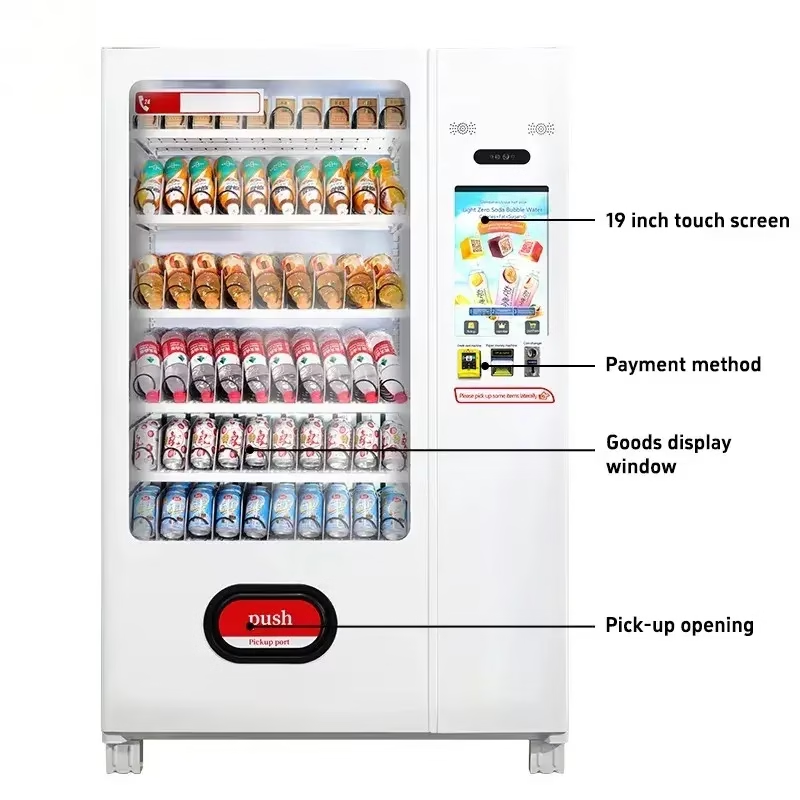Self service machines are automated systems that allow customers to complete transactions, access information, and perform various tasks without human assistance, revolutionizing how businesses operate and serve customers. These innovative devices combine technology with convenience to create seamless user experiences across multiple industries. From retail stores to healthcare facilities, self service machines are becoming essential tools for modern business operations. They reduce operational costs, improve customer satisfaction, and streamline processes that traditionally required staff intervention. As technology advances, these machines continue to evolve, offering more sophisticated features and capabilities. What makes self service machines such a powerful investment for businesses today?

Quick Reference: Self Service Machine Market Overview
| Metric | Value | Growth Rate |
|---|---|---|
| Market Size (Current) | $38.36 billion in 2025 | 7.94% CAGR |
| Projected Market Size | $56.22 billion by 2030 | 10-11% annually |
| Technology Segment | $76.8 billion by 2032 | 10.10% CAGR |
| Key Industries | Retail, Healthcare, Banking | All sectors growing |

Table of Contents
What Are Self Service Machines and How Do They Work?
Self service machines are interactive computer-based systems that enable users to perform specific tasks independently through touch screens, voice commands, or mobile app integration, eliminating the need for direct staff assistance.
Self service machines operate through sophisticated software that guides users through step-by-step processes. Moreover, these systems typically feature intuitive interfaces designed for easy navigation. Additionally, they connect to backend databases and payment processing systems to complete transactions securely.
The core components include touch screen displays, payment processors, receipt printers, and network connectivity. Furthermore, many modern machines incorporate cameras, scanners, and sensors for enhanced functionality. As a result, users can complete complex transactions quickly and efficiently.
Why Are Self Service Machines Becoming Essential for Modern Businesses?
Self service machines reduce operational costs by up to 30% while improving customer satisfaction scores and enabling 24/7 service availability, making them crucial for competitive business operations.
The primary driver behind self service machine adoption is cost reduction. Specifically, businesses can significantly decrease labor costs while maintaining service quality. Additionally, these machines operate continuously without breaks, holidays, or sick days.
Customer preferences are also shifting toward self-service options. In fact, many consumers prefer the speed and convenience of handling transactions themselves. Moreover, younger demographics particularly embrace these technologies, viewing them as more efficient than traditional service methods.
Self service machines also provide valuable data analytics. Consequently, businesses can track usage patterns, popular products, and customer behavior. This information helps optimize operations and improve service offerings.
Which Industries Benefit Most from Self Service Machine Implementation?
Retail, healthcare, hospitality, and financial services experience the greatest benefits from self service machines, with some sectors reporting up to 40% efficiency improvements.
Retail Industry: Self-checkout kiosks, product information terminals, and inventory management systems streamline shopping experiences. Additionally, these machines reduce wait times during peak hours while allowing staff to focus on customer service.
Healthcare Sector: Patient check-in kiosks, prescription pickup machines, and appointment scheduling systems improve workflow efficiency. Furthermore, these solutions reduce administrative burdens on medical staff.
Financial Services: ATMs, loan application kiosks, and account management terminals provide convenient banking services. Moreover, these machines extend service hours beyond traditional banking times.
Food Service: Ordering kiosks, payment terminals, and loyalty program machines enhance customer experience. Similarly, they reduce order errors and speed up service delivery.

How Much Do Self Service Machines Cost and What’s the ROI?
Self service machines typically cost between $3,000 to $15,000 depending on functionality, with most businesses seeing full ROI within 12-18 months through labor savings and increased efficiency.
Initial investment varies significantly based on machine complexity and features. Basic kiosks start around $3,000, while advanced machines with multiple functions can exceed $15,000. However, the return on investment often justifies these costs quickly.
Labor cost savings represent the largest ROI component. For instance, one machine can replace multiple part-time positions, saving thousands annually in wages and benefits. Additionally, reduced training costs and decreased human error contribute to overall savings.
Increased transaction volume also boosts ROI. Self service machines often process transactions faster than human operators, enabling higher throughput during busy periods. Furthermore, 24/7 availability can significantly increase revenue opportunities.
What Are the Main Challenges with Self Service Machines?
Common challenges include technical malfunctions, user resistance, maintenance costs, and security concerns, though proper planning and support can minimize these issues effectively.
Technical problems are inevitable with any electronic system. However, regular maintenance and quality equipment from reputable manufacturers like OboVending reduce downtime significantly. Additionally, having technical support contracts ensures quick resolution of issues.
User adoption can be challenging, particularly with older demographics. Nevertheless, clear instructions, intuitive design, and staff assistance during transition periods help overcome resistance. Furthermore, providing multiple service options accommodates different customer preferences.
Security concerns require ongoing attention. Specifically, machines handling payments or personal information need robust cybersecurity measures. Moreover, physical security prevents vandalism and theft.
How to Choose the Right Self Service Machine for Your Business?
Selecting the optimal self service machine requires analyzing your specific business needs, customer demographics, transaction volume, and integration requirements with existing systems.
Start by identifying your primary objectives. For example, do you want to reduce labor costs, improve customer experience, or increase transaction speed? Additionally, consider your target customer base and their technology comfort levels.
Evaluate your physical space and technical requirements. Specifically, consider available floor space, power requirements, and network connectivity. Moreover, ensure the machine integrates seamlessly with existing POS systems and databases.
Research reputable manufacturers and suppliers. Furthermore, companies like OboVending offer comprehensive solutions with ongoing support. Additionally, consider warranty terms, maintenance packages, and upgrade options.
What Does the Future Hold for Self Service Machine Technology?
Emerging technologies like AI, voice recognition, and contactless payments are transforming self service machines into more intelligent, personalized, and secure solutions for businesses and customers.
Artificial intelligence is revolutionizing self service capabilities. Specifically, AI-powered machines can provide personalized recommendations, predict maintenance needs, and adapt to user behavior patterns. Additionally, machine learning improves system performance over time.
Voice recognition technology is making machines more accessible. Furthermore, this technology helps users with visual impairments or those who prefer voice commands. Moreover, multilingual support expands customer reach.
Contactless payment options have become essential. Similarly, mobile app integration allows seamless transactions and loyalty program management. Additionally, biometric authentication enhances security while improving user convenience.

People Also Ask Questions About Self Service Machines
What is the difference between a self service kiosk and a vending machine?
Self service kiosks are interactive computer terminals that provide information, process transactions, or facilitate services through touch screens and software interfaces, while vending machines are automated retail devices that dispense specific products after payment, typically with limited interactive capabilities.
How secure are self service machines for payment processing?
Modern self service machines use advanced encryption, tokenization, and PCI DSS compliance standards to protect payment data, making them as secure as traditional POS systems when properly configured and maintained by reputable manufacturers.
Can self service machines be customized for specific business needs?
Yes, most self service machines offer extensive customization options including software interfaces, hardware configurations, branding elements, and integration capabilities to meet specific industry requirements and business objectives.
How long do self service machines typically last?
High-quality self service machines generally last 7-10 years with proper maintenance, though software updates and hardware upgrades may be needed every 3-5 years to maintain optimal performance and security standards.
What maintenance is required for self service machines?
Regular maintenance includes software updates, hardware cleaning, cash collection, receipt paper replacement, and periodic technical inspections, with most businesses requiring weekly to monthly maintenance depending on usage volume.
Do customers actually prefer using self service machines?
Studies show that 73% of customers prefer self service options for routine transactions due to faster processing times, convenience, and control over their experience, particularly among younger demographics.
How do self service machines handle customer support issues?
Modern machines include help buttons, phone support integration, remote assistance capabilities, and clear error messaging, while some advanced systems offer video chat support with live agents when needed.
What happens if a self service machine breaks down?
Most manufacturers provide 24/7 technical support, remote diagnostics, and on-site repair services, with many systems including backup procedures and alternative service options to minimize customer impact during downtime.
Looking to implement self service machines in your business? Contact OboVending at obotechgroup.com for expert consultation and premium self service solutions tailored to your specific needs.
Get Our Full Vending Machine Catalog
Fill out the form to instantly access our product catalog and see all models, specs, and pricing options.

 Privacy respected. No spam. Ever.
Privacy respected. No spam. Ever.